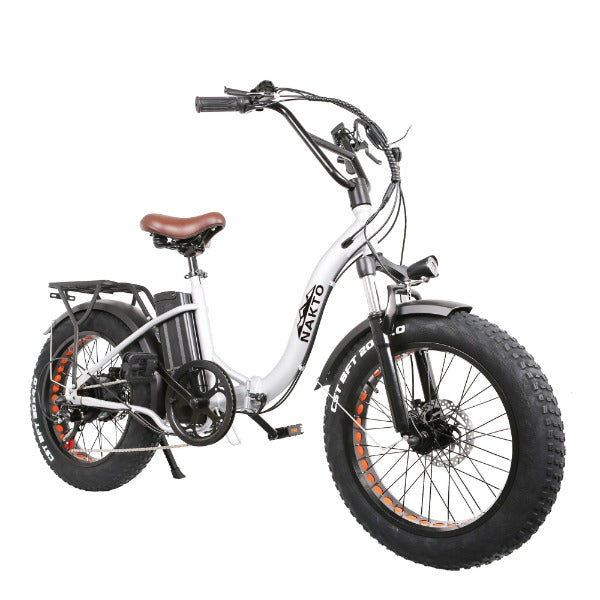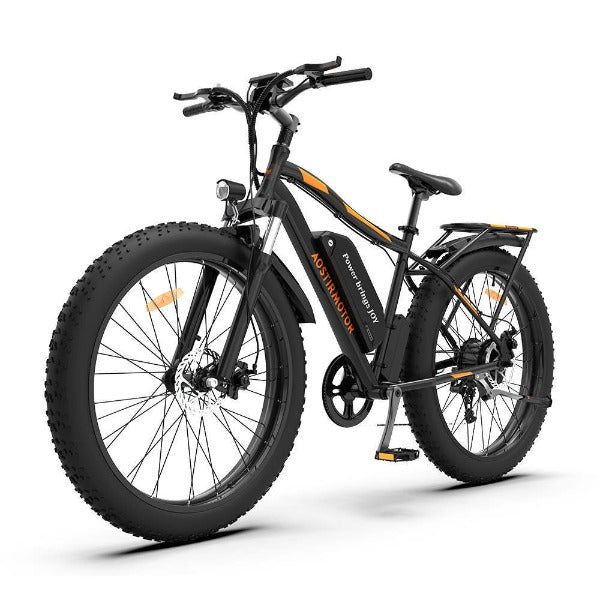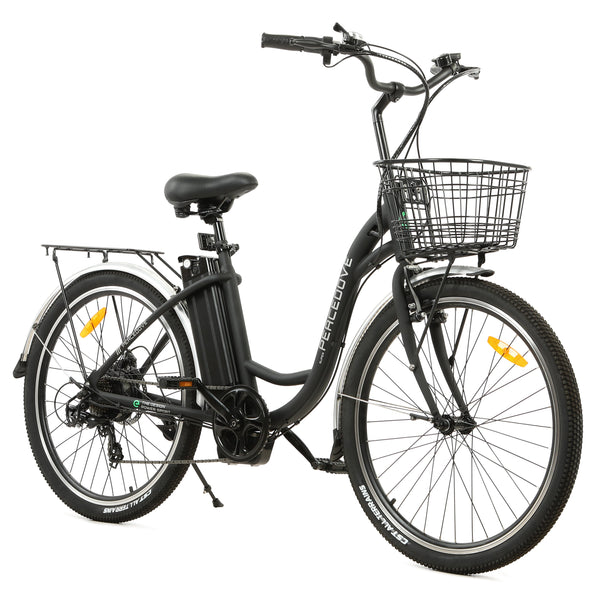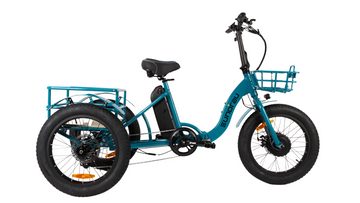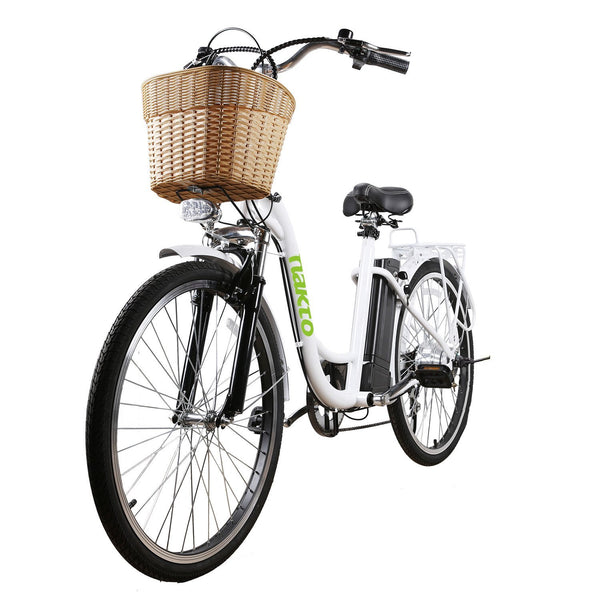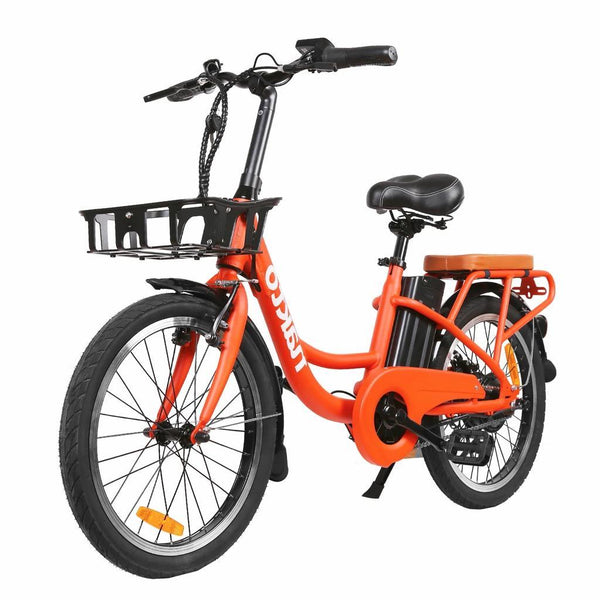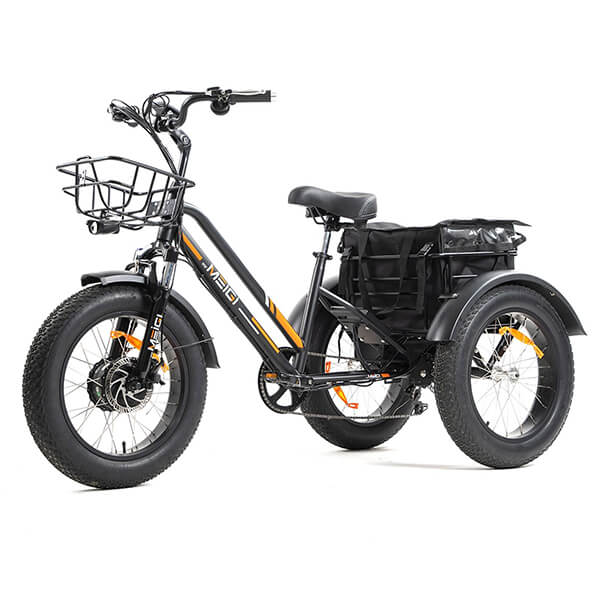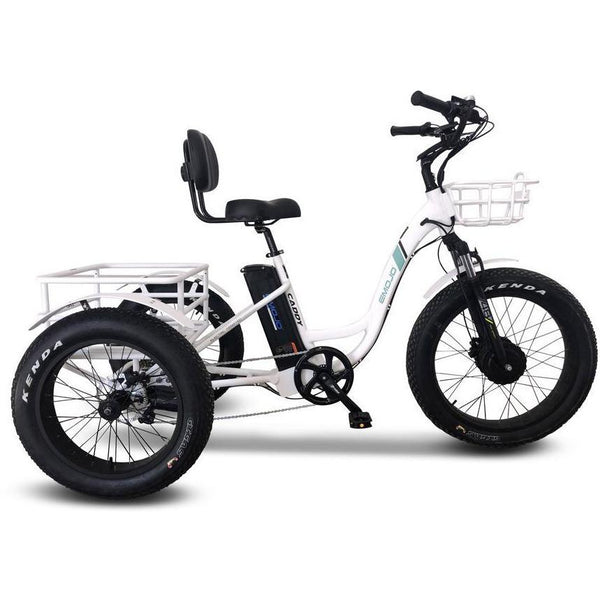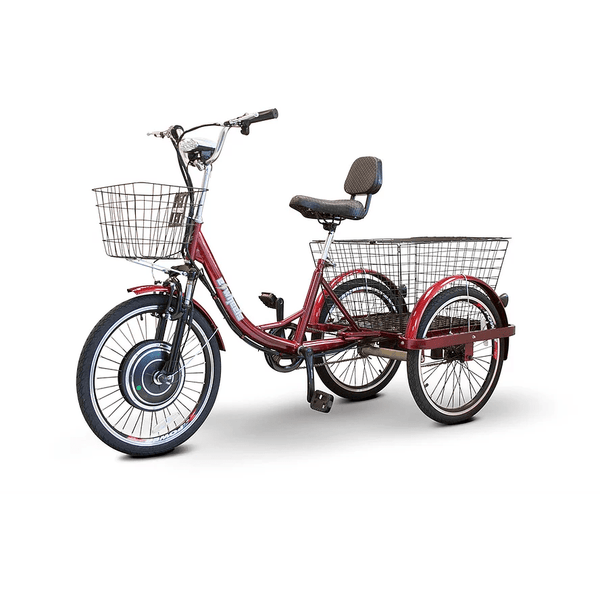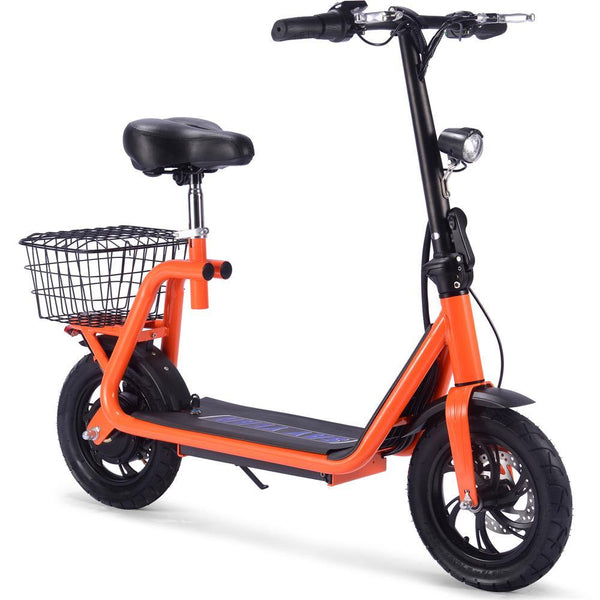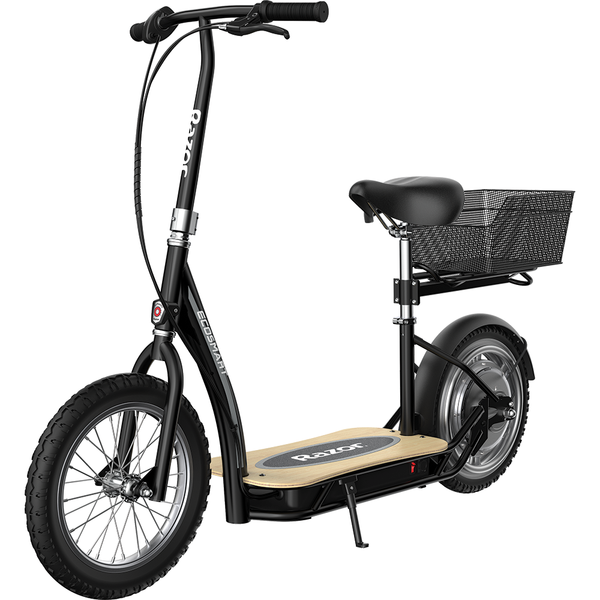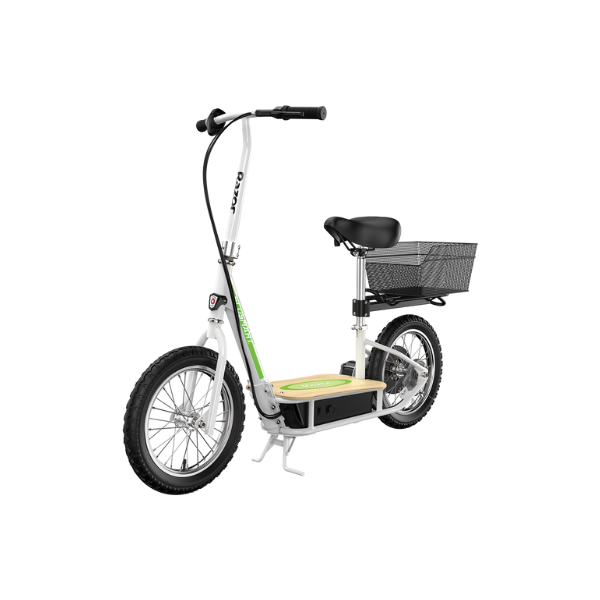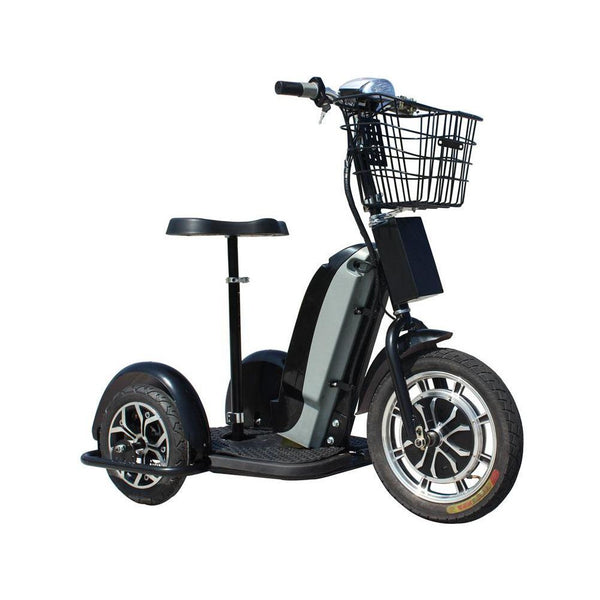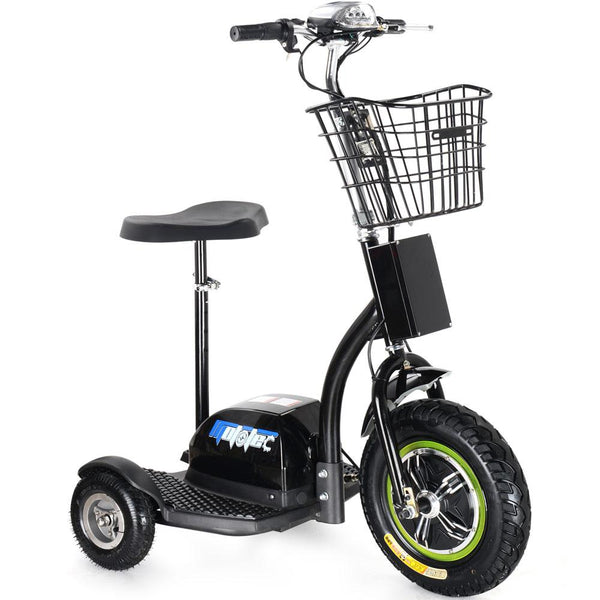There's no denying the significant environmental impact of traditional transportation, which relies heavily on fossil fuel-powered vehicles.
The combustion of fossil fuels releases greenhouse gasses, such as carbon dioxide, contributing heavily to climate change and air pollution. Transportation infrastructure like roads and highways can also lead to habitat loss, disrupting ecosystems.
The solution? Sustainable alternatives like electric bikes. Besides reducing greenhouse gas emissions and improving air quality, e-bikes promote sustainable transportation.
With electric bikes, you can embrace a healthier lifestyle while significantly contributing to preserving the environment. In this article, we'll discuss the multiple environmental benefits of electric bikes and how they can help make a positive impact on the planet.
Let's get started!
Environmental Benefits of Electric Bikes
Following are some of the environmental benefits of electric bikes:
Zero Emission
Traditional transportation methods, such as cars and motorcycles, significantly contribute to air pollution and greenhouse gas emissions.
These vehicles rely on internal combustion engines that burn fossil fuels like gasoline or diesel, releasing harmful pollutants into the atmosphere, including carbon dioxide, nitrogen oxides, and particulate matter.
According to the United States Environmental Protection Agency, a typical passenger vehicle releases nearly 4.6 metric tons of carbon dioxide annually.
This is particularly alarming, as these emissions are also a significant source of ground-level ozone (smog), which has been linked to asthma and other respiratory conditions, per the Centers for Disease Control and Prevention.
Conversely, electric bikes offer a cleaner and greener alternative to conventional modes of transportation. Powered by rechargeable batteries, e-bikes produce zero tailpipe emissions, ensuring that the air we breathe remains clean and unpolluted.

Energy Efficiency
Perhaps the most significant environmental benefit of electric bikes is their incredible energy efficiency.
Research shows that electric bikes are 18 times more energy efficient than SUVs, 13 times more efficient than salon cars, and six times more efficient than rails.
Conventional vehicles waste a significant amount of energy through heat and friction during operation. On the other hand, electric bikes have fewer moving parts and do not generate as much heat, resulting in less energy waste.
This is especially true if you travel long distances, such as commuting to work or vacationing.
Less Traffic Congestion
With cities continuing to grow and traffic congestion worsening, e-bikes can offer an effective solution.
The US Department of Transportation notes that more than 276 million vehicles were registered nationwide in 2019, expected to increase over the next ten years.
This means that more people are driving and more vehicles are on the road, increasing traffic congestion in metropolitan areas throughout the US. Besides harming the environment, traffic congestion can adversely affect public health and safety.
E-bikes offer an excellent solution to this problem by offering commuters another eco-friendly way to get around town. By adopting electric bikes as their primary mode of transportation, the number of cars on the road will decrease, reducing traffic congestion.
This reduction in traffic can have several positive effects on the environment, including decreased air pollution, reduced fuel consumption, and lower greenhouse gas emissions.
Reduced Demand for Parking
One of the most significant environmental benefits of electric bikes is the reduced demand for parking. Since electric bikes are compact, they don't need as much space for parking as cars do.
An electric bike with a 20-inch wheel, for instance, can fit into the space of two car parking spots.
As electric bikes require less space for parking, the land that would have been used otherwise for constructing large parking lots can be used instead for green spaces, parks, and other eco-friendly purposes. This helps preserve the natural habitat and promote biodiversity.
Decreased Noise Pollution
Loud honking, screeching tires, and roaring engines are the typical sounds that come to mind when we think of urban traffic. With so many vehicles moving at once, it's no surprise that noise pollution has become an inevitable part of city life, affecting human health and the environment.
Studies show that exposure to high noise levels can lead to various health problems, including cardiovascular disease, hypertension, sleep disorders, hearing impairment, and stress.
Moreover, the Wildlife Habitat Council explains that excessive noise can disrupt the animals' natural habitats, interfere with their breeding and migration patterns, and even lead to their extinction.

With electric bikes (such as the Rambo Rebel), you can help reduce noise pollution in urban areas, making cities quieter and more pleasant places to live.
This is because e-bikes are powered by electric motors, which produce significantly less noise than traditional internal combustion engines.
Lower Resource Consumption
Another environmental benefit of electric bikes is their lower resource consumption. E-bikes are powered by rechargeable batteries that can be charged using electricity from the grid, which can be generated from renewable sources such as solar, wind, or hydroelectric power.
This makes electric bikes like Nakto Camel more eco-friendly than motorized vehicles requiring gasoline or diesel.

Some electric bikes come equipped with regenerative braking systems, which convert the kinetic energy generated during braking back into electrical energy.
This energy is stored in the battery and can be used to power the bike, further increasing its energy efficiency and reducing the need for frequent charging.
Reduced Carbon Footprint
One of the electric bikes' most essential environmental benefits is that they can help reduce carbon footprint.
The United Nations notes that fossil fuels like oil, gas, and coal are responsible for around 75% of global carbon emissions. Over time, these gasses may blanket the Earth with a layer of heat-trapping gasses, making it harder for the sun's radiation to reach the surface.
This climate change can lead to severe weather events, including floods, droughts, and wildfires. But with an electric bike, you can play your part in saving your planet.
As more people switch to electric bikes, the demand for fossil fuels will decrease significantly. This demand reduction can potentially contribute to lower carbon emissions, as fewer fossil fuels will be extracted, processed, and transported.
Additionally, the transition to renewable energy sources for electricity generation can further help amplify the positive impact of e-bikes on the environment.
Cost Saving
You'll be surprised to learn that electric bikes are much more cost-effective than gas-powered cars. For starters, gasoline prices are pretty volatile and vary significantly depending on your location. The US Department of Energy notes that the average cost of driving a car is around $0.58 per mile, which can add up quickly for daily commuters.
Conversely, electric bikes are significantly cheaper to operate. It costs around $0.15 to $0.25 to charge an e-bike battery, which can last anywhere between 25 to 70 miles, depending on the model and terrain. This yields a fuel cost saving of 60% to 72% compared to driving a car.
Similarly, car insurance can be pretty expensive, especially for new drivers or those with a history of accidents or traffic violations. But since electric bikes are considered low-risk vehicles, you can save hundreds of dollars annually on insurance.
Best of all, electric bikes like Senada Roamer generally have lower maintenance costs than cars because they have fewer mechanical parts that can break or wear out.

Routine maintenance for an e-bike includes checking and inflating tires, lubricating the chain, and occasionally replacing the brake pads. The most significant maintenance expense for an e-bike is replacing the battery, which typically needs to be done every three to five years.
Environmental Benefits of Electric Bikes: The Takeaway
While the trend of using electric bikes is relatively new, there's no denying the environmental benefits of e-bikes. Electric bikes have much to offer, from improving air quality to reducing noise pollution.
Moreover, e-bikes encourage a healthier and more active lifestyle, making them perfect for commuters looking to add more physical activity to their routine.
If you want to save money and contribute to green living, consider getting an e-bike from Electric Bike Paradise.
Browse Electric Bike Paradise's collection of Electric bikes to find the perfect one that fits your needs and lifestyle. For more information or concerns, contact us; our friendly staff will be happy to help you!





